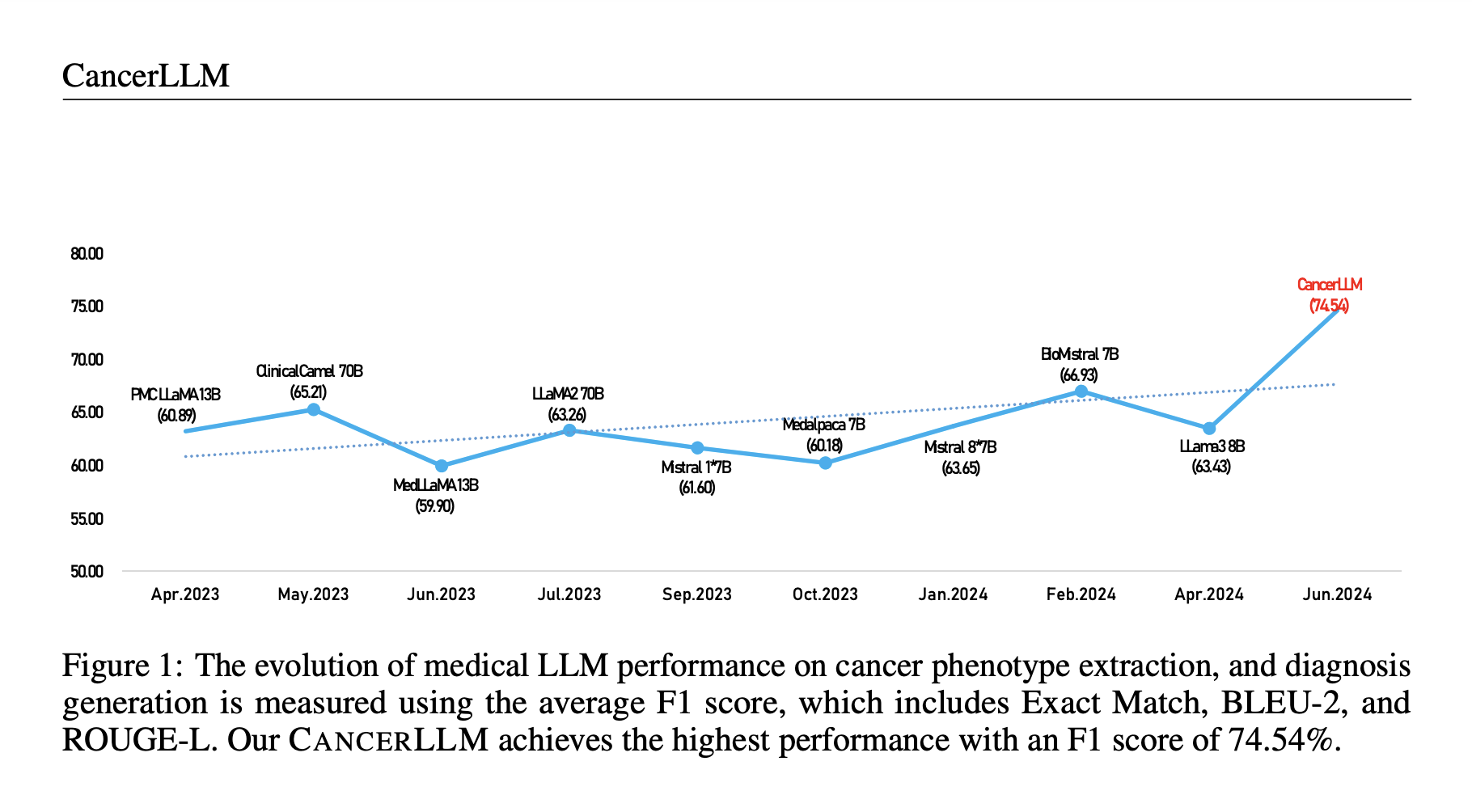
Practical AI Solutions for Cancer Diagnosis and Treatment
Introduction
Existing medical language models (LLMs) have limitations in addressing cancer-specific tasks, creating a need for a cancer-focused LLM. The high computational demands of current models also highlight the importance of smaller, more efficient LLMs for broader adoption in healthcare institutions.
The CancerLLM Model
Developed by researchers from multiple institutions, including the University of Minnesota and Yale, CancerLLM is a 7-billion-parameter language model pre-trained on extensive clinical notes and pathology reports covering 17 cancer types. It excels in cancer phenotype extraction and diagnosis generation tasks, outperforming existing models and demonstrating robustness in tests involving counterfactuals and misspellings.
Key Features and Benefits
CancerLLM’s workflow involves injecting cancer-specific knowledge and instruction tuning to pre-train, fine-tune, and evaluate the model. It significantly outperforms other medical LLMs, improving cancer diagnosis generation and phenotype extraction. The model’s efficiency, robustness, and balance of resource consumption and generation time make it a valuable tool for medical professionals.
Impact and Value
CancerLLM offers practical solutions for improving cancer research and healthcare delivery, showcasing superior performance compared to existing medical LLMs. Its domain-specific knowledge significantly contributes to its effectiveness in cancer diagnosis generation and phenotype extraction tasks, while also demonstrating efficiency in resource-constrained environments.
Integration and Adoption
CancerLLM presents a compelling opportunity for healthcare institutions to enhance their clinical AI systems and improve patient care in cancer treatment. Its effectiveness, efficiency, and practical value make it a valuable asset in advancing cancer research and healthcare delivery.
AI Solutions for Business Transformation
For companies seeking to leverage AI for business transformation, CancerLLM presents an opportunity to redefine work processes, especially in the field of healthcare. It offers practical solutions for utilizing AI in cancer diagnosis and treatment, demonstrating potential for significant impact on patient care and research outcomes.

























